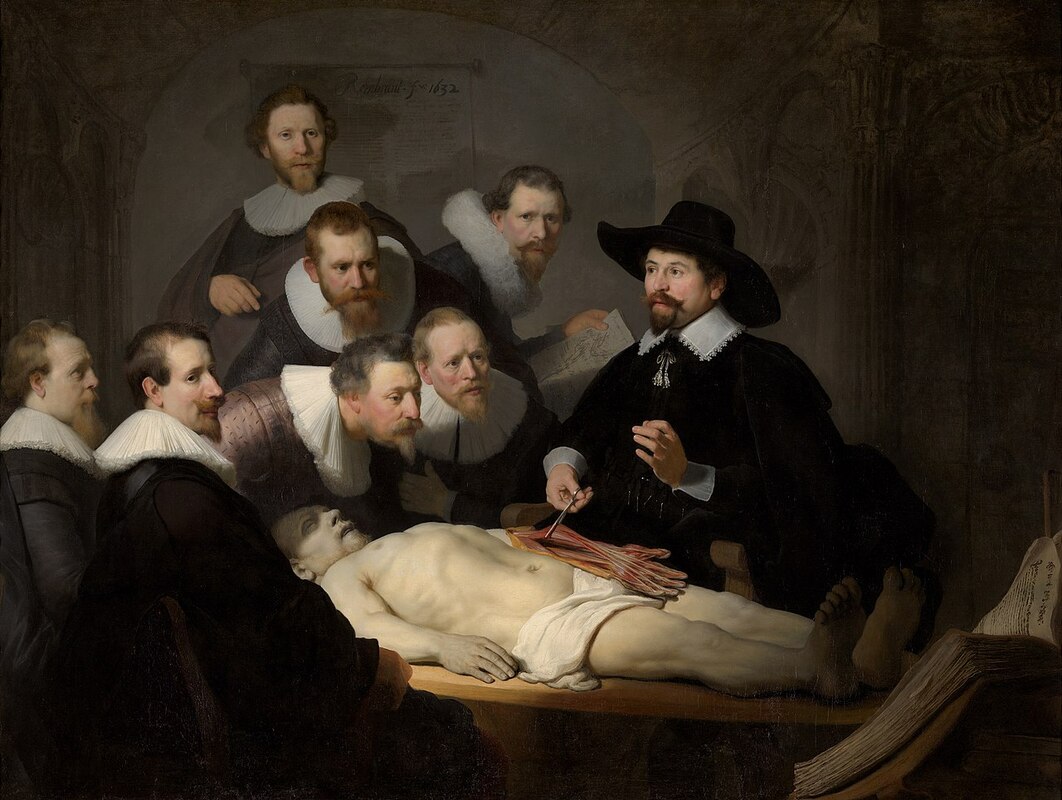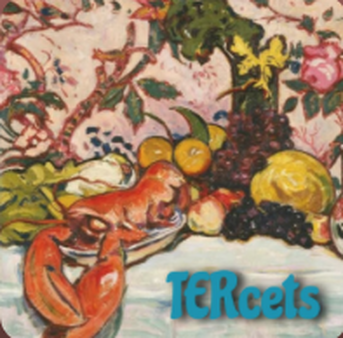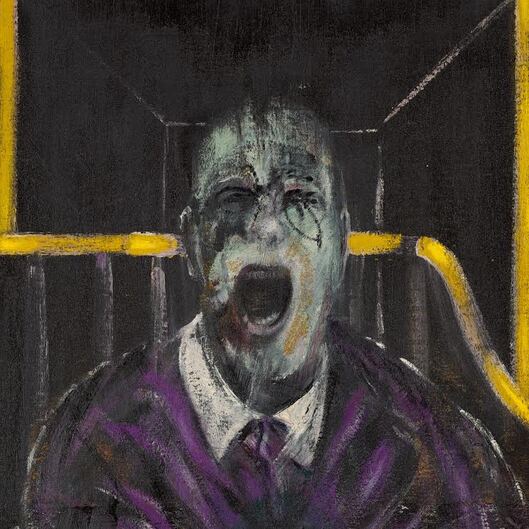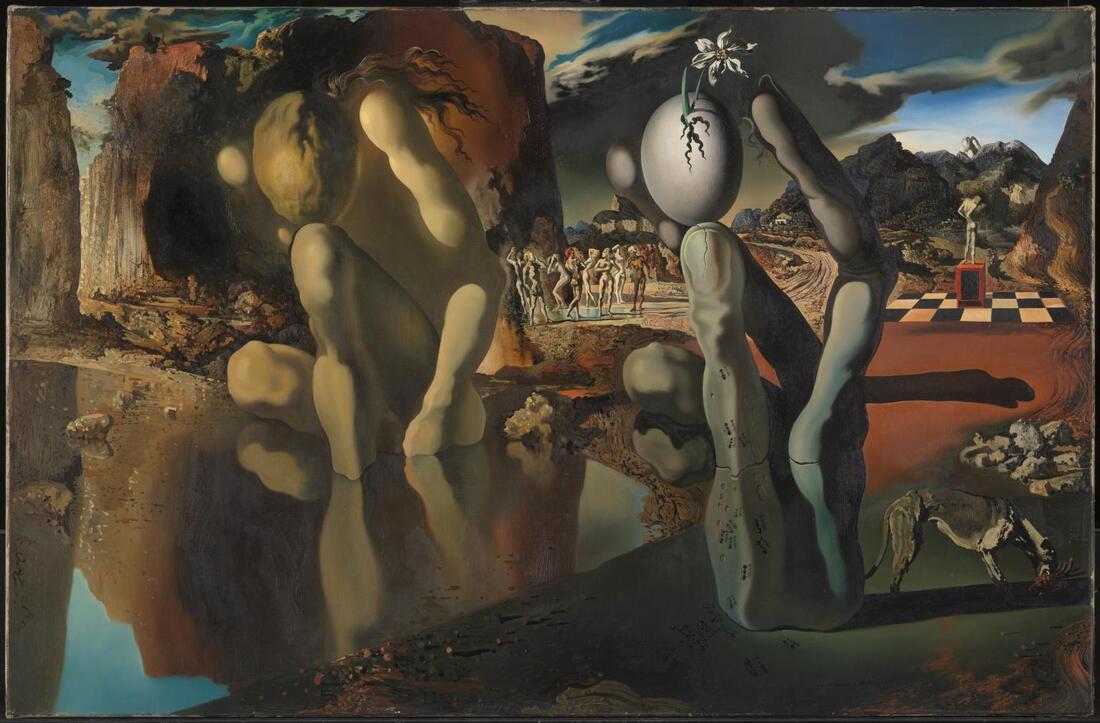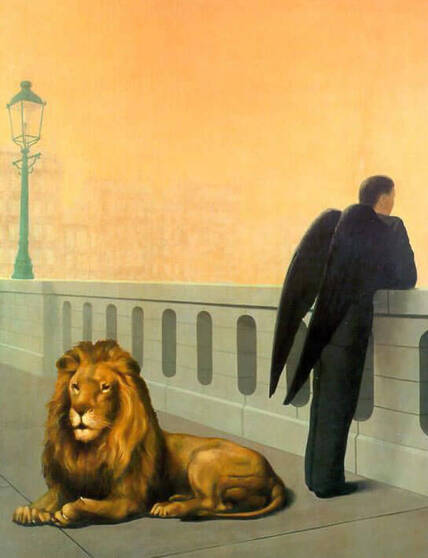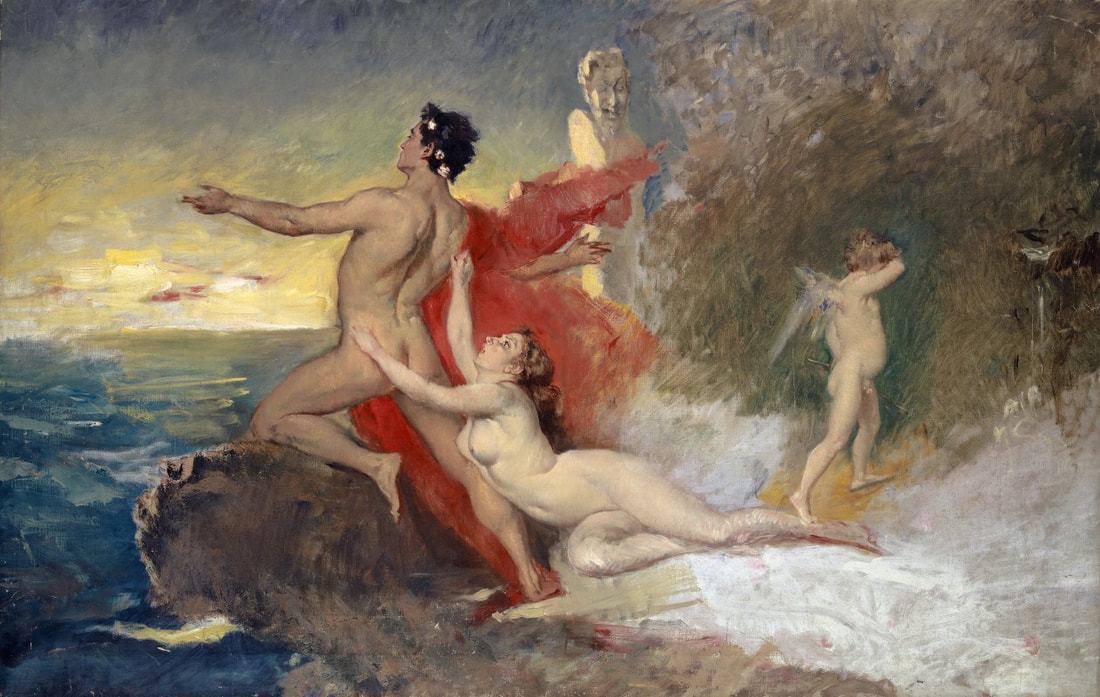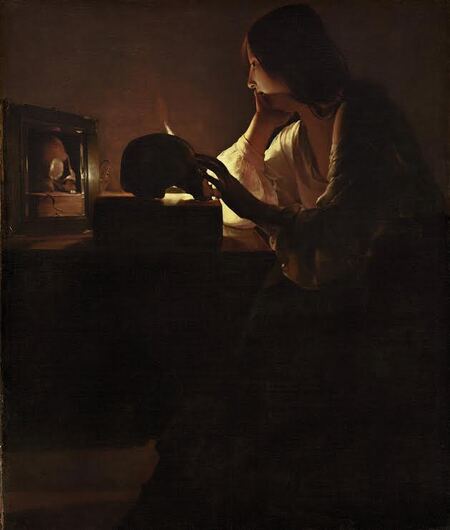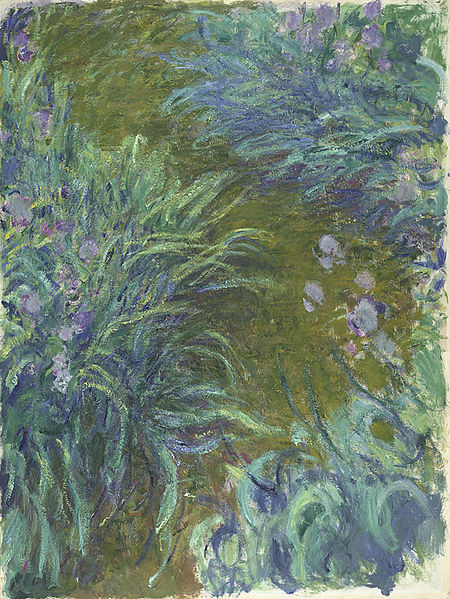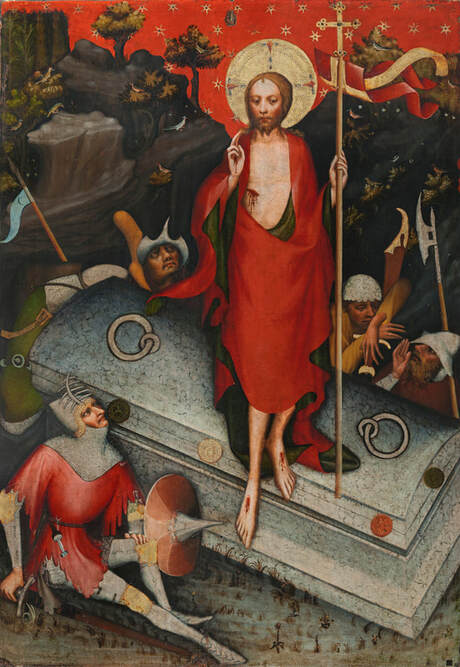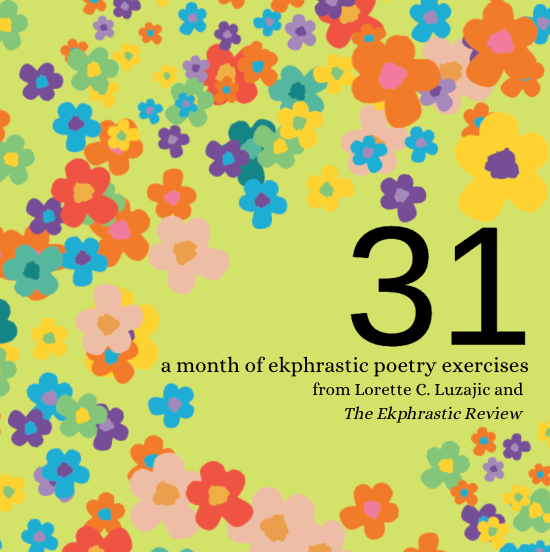|
Aula de anatomia do Professor Karl Breuing Envolta em panos cirúrgicos (um cheiro intenso a formol) esta mulher desconhece o que lhe fazem ao corpo. «Mrs. Riley are you there? May I call you Mrs. Riley?» Um cadáver não responde. Nem este nem nenhum dos outros que doados à ciência vão permitir avançar de onde esta vida parou. «Are you still there Mrs. Riley? May we call you Mrs. Riley?» Mrs. Riley já não está. Para trás deixou o corpo à guilda de cirurgiões (não para dissecar um membro como usava Dr. Tulp) antes recriar o seio que a doença levou. No teatro anatómico da Universidade de Bristol a memória dos mortos está na atenção dos vivos. «Are you still there Mrs. Riley? Shall I call you Mrs. Riley?» Num instante Mrs. Riley estará de novo completa – nas mãos do Professor Breuing será como repetir Deus. ** Professor Karl Breuing’s Anatomy Class Enveloped in surgical sheets (an intense smell of formalin) this woman does not know what they do to her body. Mrs. Riley are you there? May I call you Mrs. Riley? A cadaver holds its peace. Neither she nor any of the others donated to science will permit any progress past the end of this life. Are you still there Mrs. Riley? May we call you Mrs. Riley? Mrs. Riley is not home. She left her body behind for the Surgeons Guild (not for limb dissection as Dr. Tulp had hoped) to rebuild the breast taken by illness. In the anatomical theater at the University of Bristol the memory of the dead is tended to by the living. Are you still there Mrs. Riley? Shall I call you Mrs. Riley? In a moment Mrs. Riley will be once again complete – in the hands of Professor Breuing it’s like replicating God. João Luís Barreto Guimarães, translated from the Portuguese by Calvin Olsen João Luís Barreto Guimarães was born in Porto, Portugal (June 1967) where he graduated in Medicine. He is a Poet (as well as a Breast Reconstructive Surgeon). As a writer, he is the author of 10 poetry books since 1989, collected twice, including his first 7 books in “Collected Poetry” (“Poesia Reunida”, Lisbon, Quetzal, 2011) and the subsequent “You Are Here” (“Você está Aqui”, Lisbon, Quetzal, 2013), publish also in Italy, “Mediterranean” (“Mediterrâneo”, Lisbon, Quetzal, 2016) chosen as National Award António Ramos Rosa 2017 for best poetry book edited in Portugal in 2016 and published in Spain, France, Poland and Italy where it was finalist of Camaiori International Prize 2018, “Nomad” (“Nómada”, Lisbon, Quetzal, 2018) chosen as Best Poetry Book Bertrand Award 2018, publish also in Italy, and the 100 poem anthology “Time Advances by Syllables” (“O Tempo avança por Sílabas”, Lisbon, Quetzal, 2019), publish also in Croatia. Forthcomming is “Movement” (“Movimento”, Lisbon, Quetzal, September 2020). His poems have been published in anthologies and literary magazines in Portugal, Spain, France, Belgium, Holland, Germany, Austria, Italy, United Kingdom, Croatia, Slovenia, Montenegro, Bulgaria, Macedonia, Brazil, Mexico, Dominican Republic, Uruguay and United States. He has read at literary Festivals in Spain, México, Croatia, Germany and USA, as well as in Serbia, via video. His poems and their translations to English have appeared in: World Literature Today, Poetry London, Asymptote, The Banyan Review, Salamander, Anima, Tupelo Quarterly, The London Magazine, The Columbia Review, The Chaattahoochee Review, The Cortland Review, Bellevue Literary Review, International Poetry Review, The Common, Ezra Translation, Anomaly, LIT Magazine and World Without Borders. Calvin Olsen is an internationally-published poet and translator. He holds an MA in English & Comparative Literature and an MFA in Creative Writing. He has taught English, composition, creative writing, and comparative literature at Boston University, The University of North Carolina at Chapel Hill, Wentworth Institute of Technology, and Bunker Hill Community College. Calvin Olsen’s poetry and translations have recently appeared in Poet Lore, The National Poetry Review, AGNI, Asymptote, and The Cortland Review, among others. He lives in North Carolina, USA, where he is a doctoral student and the poetry editor for The Carolina Quarterly. More of his work can be found at calvin-olsen.com.
1 Comment
TERcets Episode 5 is out! Click here to listen. This edition features host Brian A. Salmons reading Jenna Le, Diane Durant, and Chuck Salmons. If this is the first time you're hearing out TERcets, here's the story: TER contributor and Facebook page manager Brian A. Salmons dreamed up this initiative earlier this year. There are five episodes so far and they are amazing. You can catch up here. You can always find the podcasts under the menu at the top of the site: TERcets Podcast. The Screaming Father The night air was humid—unable to sleep he searched for shoes. You could follow the canal path right down to the edge of the ocean. Beside the lock-gates he sat, taking in the monochrome monolith-- where the sea ended and the stars began. A triptych of figures approached the bench opposite, ghostly but almost human-- biomorphic substitutes painted in primer, moving in freeze-frame steps, as if zigzagging in and out of reality—mottled with jarring resemblances. He saw his father in three forms—old as he is now, as a young father, and then from before his own time-- known only to him from faded photographs. Upon seating they coalesced—shapeshifting into one disfigured being, a screaming father crying in silence, with only the rolling of waves to be heard. A face—sombre and gaunt, with gnarled limbs and knotted veins below a waxen and diseased skin. He waited all night for his father—almost writhing, the face moving subtly, continually deforming and contorting. Somehow it didn't seem in pain, just overstimulated, processing a whole lifetime and from within searching for an exit—an end. As the first rays of light pierced the monolith, the darkness dissipates—taking his father— he returns home to a ringing telephone. Sean Chapman Sean Chapman is a British writer living in Cornwall beside the capricious Atlantic Ocean and amongst the blur of a blue Whippet and a red fox Labrador. His prolonged and wayward adolescence included working in a Taiwanese astrophysics department, on a Salford mental health ward, on the Liverpool docks and in a Manchester disability support office, before washing ashore in a Cornish surf shop. Between daydreams of cowboy adventures and surfing escapades he writes poems, dedicated to Maggie, some of which have appeared or are forthcoming in Marble Poetry, Raceme, Squawk Back, Prole, Dreich, The Pomegranate London, Trouvaille Review, Feed, The Opiate and Anti-Heroin Chic. Metamorphosis: Leaving the Narcissist’s House This story begins at altitude. You, after the years of silence, loneliness, learn to navigate by the senses left to you. Fear gives off a rotting smell, but there’s also joy, which comes in fleeting whiffs and smells of lilac trees. The thought that something grows here sustains you. A feeling of rough unfinished walls chafes against your skin, but also there is cool at the spot in the floor where you press your head those days when it’s about to split open. The eyes still detect shadow. The walls haven’t blocked everything you’re sure. At night the shadows become monsters; some mornings they are dark calm places. You think how everything tastes like dust – still, you remember honey. And once in a while, above your head, something starts to crack. Infrequent to the point you’ve often doubted that you heard what you heard. But the sound is in the ceiling – or on it – coming more often. Something in this room, a space you’ve outgrown, starts to give. He used to say, ‘No one feels the way you do’ and you couldn’t find a soul to refute what you knew to be false. He’d blame you for the changes in mood, the hopelessness in his expression, the ache in his knuckles. Some will say he locked you here and while he may have been the reason – you came here to preserve what was still alive, pulsing below the surface in the dark spaces. Today the cracking sounds grow frequent, a quickening drum beat of wood beams splitting, of plasterboard pulling apart and turning to dust. The thought of climax terrifies you who’s noticed no more taste of blood, no shifting of teeth, no swelling, no pushing out behind the bones. Invisibility – you wondered if it was your superpower. But what could you do with it? You could find space to find the things he told you didn’t exist. The cracking noises are faster now. When it happens it hurts – so much you shield your eyes. The light pushing through a pinhole, focused into such a beam it might be cutting into your mind. Then, something softens. There’s a warmth you don’t know, a crack big enough you almost see what’s on the other side. Someone maybe is breaking through. But no – it’s just you, alone, outgrowing your container Born at altitude. You think you hear laughter in the distance. It’s been so long. A circle of people dancing in the distance. It’s laughter. Or maybe it’s screaming. How do you tell the difference. You will. You will. No one is around to tell you differently. You peek over the shell of your old life, scan the surrounds. Everything dry. Seems dry. But there are specks of life. An alley cat, ribs showing, finding food on the ground, daring to live. It’s matted frizzled hair. A sunflower rises from a crack in the ground, there’s still some green and gold. Your gaze moves closer. And you see him. Looking much the same as the last time. In front of the mirror, stone like. You wonder if you touched him now if he’d turn to dust. It only saddens you for a moment and then you see. Past him and in the reflection. Petals shine like gold. It’s you in full bloom, feet still searching for steady ground, but alive. Born at altitude. Everyone you believe eventually leaves, taking their answers with them. They haven’t taken your answers, sprouted from the bones of the old. From here you can discern, what supports life what doesn’t. You can see you’re not alone. You can feast on the residue of myths crumbling beneath you, beginning as you are, at altitude. D.A. Gray D.A. Gray is the author of Contested Terrain (2017) and Overwatch (2011). His poems have appeared in The Sewanee Review, Grey Sparrow Journal, The Ekphrastic Review, Comstock Review, Still: The Journal and Wrath-Bearing Tree among others. He holds Masters Degrees from The Sewanee School of Letters and Texas A&M-Central Texas. Gray now teaches, writes, and lives in Central Texas. Congratulations to Nicole Ravas, winner of our first Flash in a Flash fiction contest! Click on image for more information, and to read the story. Kalypso Has Questions for Odysseus Tell me, Odysseus, what will you do on your island? Mend nets? Stitch sails? Tell the wives of your men how you fucked your way home while their children were hungry? What will you do, when the bones of Ithaka whisper my name? Know this, lord king, the tongue of my tide will reach you. You’ll have to stop swimming to silence it, stuff up its throat so the waves can’t speak, or breathe my name in your lungs. Tell me, Odysseus, what will you think in your olive bed, its roots through the floor and arms out-stretched like vines? What will you say when she comes to you, with her broken nails and thin crone breasts? Will there be enough left? Or will you make space for me? An itty bit of space, for me to slip in with a click of my braids, and the breath of my dress, falling, falling, fallen, down to the floor. Sue Watling Sue Watling is a poet and writer living north of the River Humber in the UK, where she has an allotment and keeps bees. Sue has had work accepted by The Adriatic, Seaborne Magazine, Tide Rises, Amethyst Review, DawnTreader, Saravasti, Spelt Magazine Advent Calendar, Green Ink Poetry, ASP Literary Journal, Dream Catcher, the High Wolds Poetry Festival and There Is No Planet B, Stafford Green Arts Festival Poetry Anthology, while also contributing to the Women of Words and Away with Words open mic events. On Reflection for Larry Lutchmansingh Room compressed to claustrophobia, woman’s world reduced to this: 3 colours – drab, curdled, black -- her own flesh caught somewhere in between; 4 objects -- skull, box, mirror, candle (masked by skull) – wift of flame, sole spark of light. Skull -- brainless, jawless, breathless – sits atop the shuttered box, doubled in the mirror’s glass. Woman, worn by chiaroscuro’s unsettled truce, leans, elbow propped upon her vanity. Death doubles down its argument, the finite truth her fingertips confirm, resting on that empty cranium. Dark rises, consumes her lower half, undermines the table legs, stakes its claim as stabilizing force. Back turned against encroaching shadows, woman breathes the slim flame slant. She sees what darkness does not comprehend: Light casts the shadows, carves the hollows, forms flesh and wood and bone from airless void, makes skull shine and frail cloth glow, generates reflection. Light is substance. Light is source. Light reigns. Ann de Forest Ann de Forest studied the history of art at Bowdoin College and University of North Carolina before turning to writing. Her work often centres on the resonance of place .Her short stories, essays, and poetry have appeared in Coal Hill Review, Unbroken, Noctua Review, Cleaver Magazine, Found Poetry Review, The Journal, Hotel Amerika, Timber Creek Review, Open City, and PIF, and in Hidden City Philadelphia, where she is a contributing writer. She has documented stories of displacement for Al Bustan: Seeds of Culture and examined the bonds that develop between home health care providers and their patients in the photo essay book Healing on the Homefront. Nominated for a Pushcart Prize and Best of the Net, she is currently editing an anthology of essays about walking, Slow Going, to be published by New Door Books next spring, a project inspired by having twice walked the entire perimeter of Philadelphia, the city she has called home for three decades. Death on a Sidewalk I took a turn under a luncheon sun for the unfurling of bearded iris flags, billows unwound from pencil-thin buds-- purple, violet, blue, and cream petal-splashes that I floated and puddled on a thin archival page in a class of middling women lost in the loose paint-night spills of dry rosé and gossip, rendering watery Cotswold gardens, masterworks to lavish on mudroom walls. Yesterday a bed-edge iris took an early fall, death by a rude shoe or tossed ball; I stood over this rainbow rider, now dirt-bound and brick-baked, its royal frills shriveling into common bruises and yellowing, like the nicotine fingers of my painting teacher tapping, always tapping, a Marlboro pack. The iris cast a hard-headed silhouette on the sidewalk—a gaping ruffle, jaw-jutted open, in the moment of no air. Catherine Hamrick Catherine Hamrick is the copywriter for Berry College in Rome, Georgia, and previously held editorial positions at Cooking Light, Southern Accents, Better Homes and Gardens, and Meredith Books. Her poems have appeared in The Blue Mountain Review and storySouth. She posts reflections and creative writing on the blog Random Storyteller: https://randomstoryteller.com/. The new challenge is up! Click here for instructions, deadlines, etc. Celebrate April, National Poetry Month, or any month- with a daily ekphrastic poetry practice. This ebook contains poetry projects and exercises for every day of any month. These are not specific painting prompts but ideas to stretch your ekphrastic mind in all kinds of directions. Each exercise will point to or suggest how to choose an artwork on a theme, or challenge you to a new approach to poetry or even a new form. Your ebook purchases are a tremendous support to the maintenance of The Ekphrastic Review and we are most grateful. You have enabled us to start offering occasional cash prizes to writers for contests and helped support web fees and more. THANK YOU. |
The Ekphrastic Review
COOKIES/PRIVACY
This site uses cookies to deliver your best navigation experience this time and next. Continuing here means you consent to cookies. Thank you. Join us on Facebook:
July 2024
|
